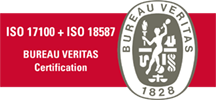Certified translation in Lisbon — complete guide for businesses (deadlines & prices)
Certified translation in Lisbon: how it works, who can certify, and what it costs. This guide explains timelines, apostilles, and practical steps for smooth submissions.

Table of Contents
What “certified translation in Lisbon” means (and when you need it)
A certified translation in Lisbon is a translation accompanied by a formal statement and signature attesting to its fidelity to the source document. In Portugal, certification typically involves a notary or solicitor and is recognised by authorities when the translated document is submitted to public bodies, courts or universities. You will need a certified translation in Lisbon for documents like civil records, criminal records, company certificates, diplomas, contracts and powers of attorney.
If the translation will be used outside Portugal, ask at the outset where the document will be filed. The destination country can change formalities. For an overview of options and scope, see M21Global’s page on Certified Translations which explains notarial certification and handling for cross-border use, including the Hague Apostille.
Link: Certified Translations.
Common scenarios requiring a certified translation in Lisbon
Companies often need a certified translation in Lisbon to register branches, bid in tenders, or submit audited accounts. Individuals need it for residence permits, citizenship, university admissions, or marriage procedures. If your matter is legal, a provider with proven legal translation expertise helps ensure terminology is right the first time.
Link: Legal Translation.
Many clients also ask when a sworn translator is required. In Portugal, certification is tied to notarial or solicitor acts; for cross-border filings you may additionally need an apostille or follow the destination country’s rules. For a plain-English primer, M21Global’s Certified Translation Guide walks through requirements, apostille basics and document types.
Link: Certified Translation — Guide.
Deadlines in Lisbon: realistic timelines & how to avoid delays
Turnaround depends on volume, legibility, language pair and whether you need an apostille. For short civil records (1–2 pages), a certified translation in Lisbon typically takes 1–3 business days, plus delivery time for the stamped set. Larger bundles (e.g., corporate filings or court records) need extra time for terminology checks and pagination of exhibits.
To avoid delays: (1) send clear scans; (2) confirm the filing country; (3) say if you need hard copies or if PDFs are acceptable; (4) align apostille/legalisation early. M21Global provides same-day dispatch of physical certified sets by CTT or couriers where required, and will advise if any destination-specific clauses must be added. For broader scheduling options and languages covered, see the Translation Services overview.
Link: Translation Services.
Prices: what drives cost and how to budget
Pricing for a certified translation in Lisbon reflects word count, subject matter, language pair and the need for notarisation or additional copies. Legal or technical content typically requires senior review, which can affect price. Ask for an itemised estimate that separates translation, certification, copies and courier.
Budget tips: group related documents to streamline certification; provide editable files when possible; and tell your provider how many certified sets you need. To compare quality signals when evaluating quotes, check the agency’s quality framework and experience. M21Global explains its approach and credentials on its Translation Company page, including address and contact details in Lisbon.
Link: Translation Company.
Apostille & legalisation for use in Portugal and abroad
If your certified translation in Lisbon will be used in another Hague Convention state, you may need an apostille on the notarial certificate. For UK-issued originals headed to Portugal, use the UK Legalisation Office (apostille) before translation or as advised by the receiving body.
External links:
– GOV.UK — Get your document legalised
– European e-Justice — Public documents & multilingual forms
Not every EU filing needs legalisation: some public documents are exempt or can use multilingual standard forms. Confirm with the receiving authority, your legal counsel or your translation provider before paying for extra steps.
How to order a certified translation in Lisbon (step-by-step)
- Share your documents securely. Request a quote and attach scans; identify the destination country and deadline.
- Receive a written estimate. Your quote for a certified translation in Lisbon should specify delivery format (PDF/hard copy), number of sets, and whether apostille is needed.
- Translation & review. Expect two-step revision for accuracy and consistency.
- Certification. The translator’s statement is signed and notarised/solicitor-certified; copies are produced.
- Apostille (if required). Your provider coordinates timing or guides you to the competent authority.
- Delivery. M21Global can send stamped sets by post or courier and provide PDFs for preview.
For personalised guidance or urgent filings, contact the team directly via the Lisbon office.
Link: Contact us.
Quality & compliance: ISO 17100 and legal translation
For regulated workflows, choose a provider certified under ISO 17100 for translation services. This standard requires qualified linguists and systematic revision, which supports complex cases like a certified translation in Lisbon for court use. See M21Global’s article on ISO 17100 scope, roles and benefits for buyers.
Link: ISO 17100 Certified Translation Services.
When your project involves statutes, rulings or contracts, pair ISO processes with dedicated legal translation capability. Terminology accuracy, layout fidelity (stamps, seals, annexes) and pagination must survive certification and any apostille layers to ensure the final bundle is accepted without queries.
FAQ
Q1. What is the difference between certified, sworn and notarised translations in Portugal?
In Portugal, a certified translation includes a translator’s statement that the translation is faithful to the original. This statement is signed and typically notarised or certified by a solicitor. “Sworn” is often used informally to describe the same outcome, though some countries have specific sworn-translator regimes. When you request a certified translation in Lisbon, the agency will confirm the exact format required by the receiving body.
Notarisation authenticates the signature on the declaration; it doesn’t assess translation quality. For cross-border use, some destinations ask for an apostille on the notarial act. Always specify where the document will be filed so your provider can match the correct certification path and advise whether legalisation is needed.
Q2. How long does a certified translation take in Lisbon, and can I get urgent delivery?
Short civil records can often be completed within 1–3 business days, while corporate or legal bundles take longer due to terminology checks and page formatting. If you need express service, send clear scans early, confirm the number of certified sets, and disclose the filing country. This lets your provider schedule the certification and, if necessary, an apostille without bottlenecks.
Urgent delivery is possible for many languages, especially when PDF output is accepted for preview. Physical sets can be dispatched by CTT or courier. Plan extra time for any apostille or consular step. A transparent quote will outline options and costs for expedited work.
Q3. Do I always need an apostille with my certified translation in Lisbon?
No. Apostilles are only required when the destination authority asks for them, typically for documents used outside Portugal in Hague Convention countries. Within the EU, some public documents are exempt from legalisation, and multilingual standard forms can replace translation in certain cases. Your provider can check the receiving body’s rules and help you avoid unnecessary steps.
If an apostille is needed, it is applied to the notarial certificate or the original document, depending on the case. Confirm sequencing before you start: getting the order wrong may force you to redo certification or legalisation, increasing costs and delays.
Q4. How can I compare quotes and choose a reliable provider in Lisbon?
Compare not just price but also process: ask if the agency follows ISO 17100 with two-step revision, what their legal translation experience is, and how they handle pagination of annexes and seals. For a certified translation in Lisbon, quality failures can be costly if authorities reject a submission, so due diligence pays off.
Request a written scope: languages, delivery formats, number of certified sets, whether apostille handling is included, and courier options. Review sample documents or references where possible. Finally, check that the agency is reachable with a local address and clear support channels for post-delivery queries.

